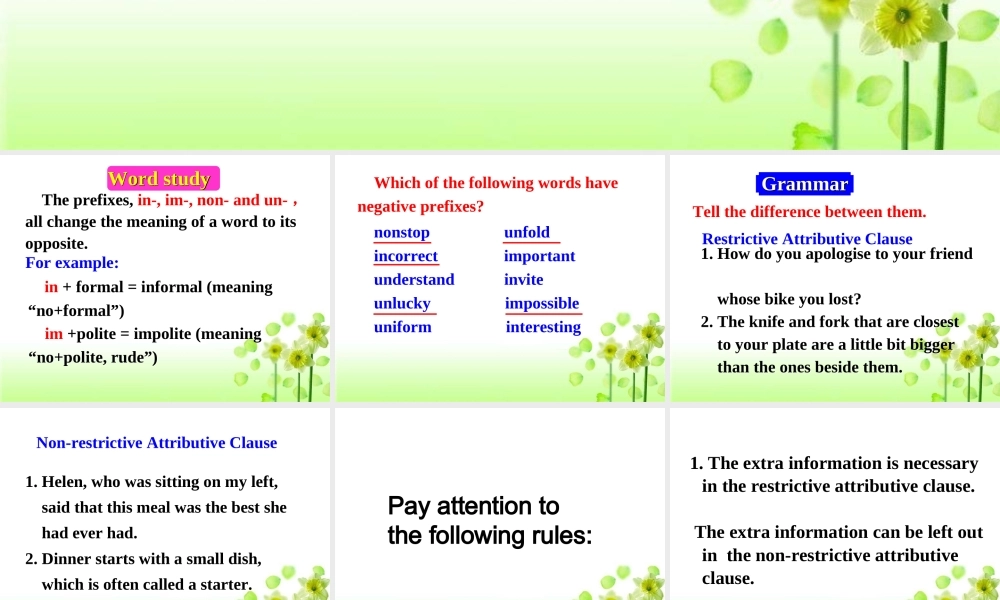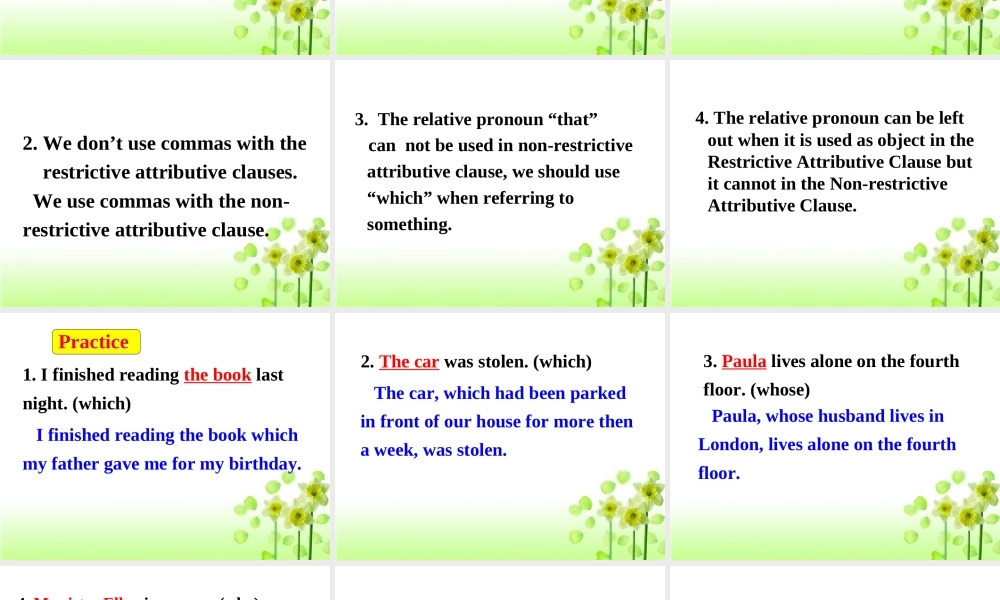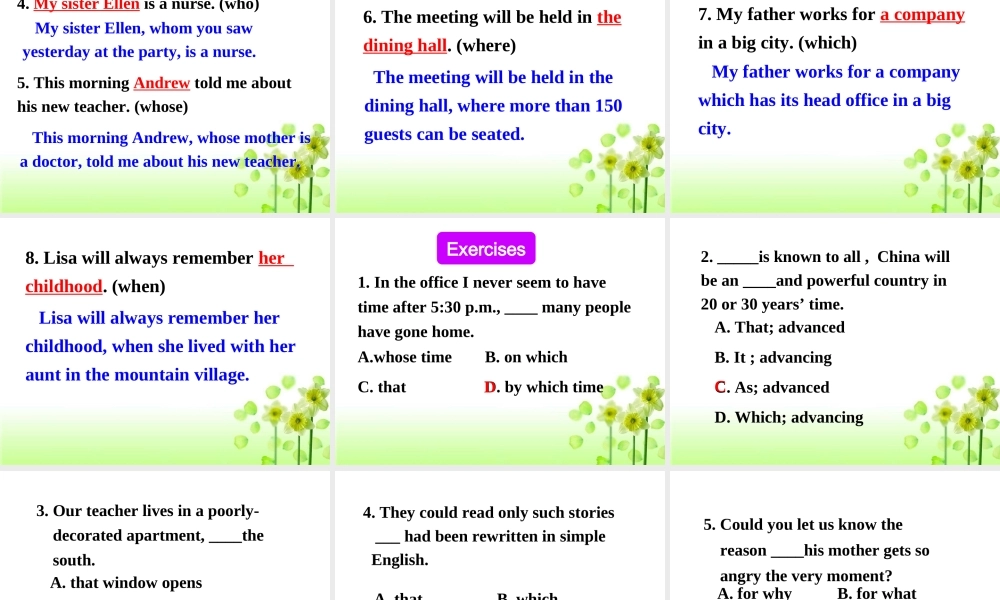Language Study Word studyWord study The prefixes, in-, im-, non- and un- , all change the meaning of a word to its opposite. For example: in + formal = informal (meaning “no+formal”) im +polite = impolite (meaning “no+polite, rude”) im +polite = impolite (meaning “no+polite, rude”) Which of the following words have negative prefixes? nonstop unfold incorrect important understand invite unlucky impossible uniform interesting GrammarGrammarTell the difference between them.Tell the difference between them.Restrictive Attributive Clause Restrictive Attributive Clause 1. How do you apologise to your friend whose bike you lost?2. The knife and fork that are closest to your plate are a little bit bigger than the ones beside them.1. How do you apologise to your friend whose bike you lost?2. The knife and fork that are closest to your plate are a little bit bigger than the ones beside them. Non-restrictive Attributive Clause Non-restrictive Attributive Clause 1. Helen, who was sitting on my left, said that this meal was the best she had ever had.2. Dinner starts with a small dish, which is often called a starter.1. Helen, who was sitting on my left, said that this meal was the best she had ever had.2. Dinner starts with a small dish, which is often called a starter. Pay attention to the following rules: 1. The extra information is necessary in the restrictive attributive clause. The extra information can be left out in the non-restrictive attributive clause.1. The extra information is necessary in the restrictive attributive clause. The extra information can be left out in the non-restrictive attributive clause. 2. We don’t use commas with the restrictive attributive clauses. We use commas with t...




